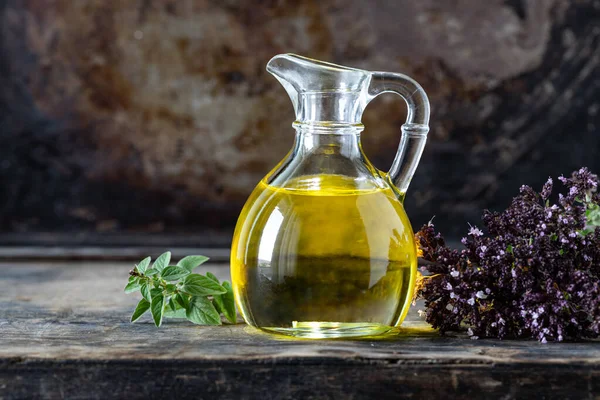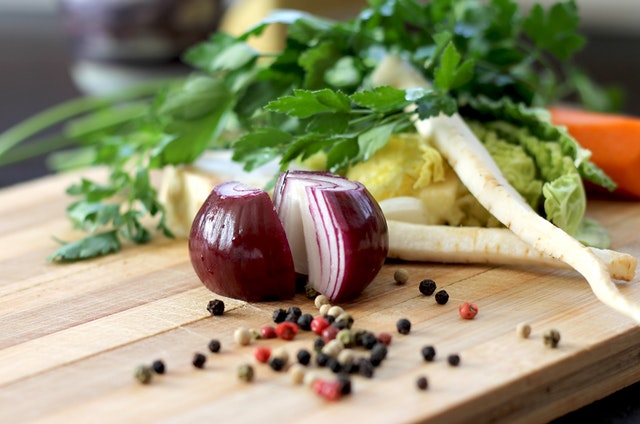Crafting Nature’s Elixir: The Benefits of Oregano Oil and How to Make It at Home
In the realm of natural remedies, oregano oil has emerged as a powerful and versatile essential oil, renowned for its numerous health benefits. Derived from the leaves of the oregano plant (Origanum vulgare), this aromatic oil is rich in compounds that possess antimicrobial, anti-inflammatory, and antioxidant properties. In this article, we will explore the various benefits of oregano oil and guide you through the process of making your own potent concoction at home.
The Healing Power of Oregano Oil:
- Antimicrobial Properties: Oregano oil is a potent antimicrobial agent, thanks to its high concentration of carvacrol, thymol, and other compounds. These substances have been found to be effective against various bacteria, viruses, and fungi. Research suggests that oregano oil may help combat infections and support the immune system in its fight against pathogens.
- Anti-Inflammatory Effects: The anti-inflammatory properties of oregano oil make it a valuable asset in addressing inflammatory conditions. Whether used topically or ingested, the oil may help reduce inflammation, providing relief for conditions such as arthritis and other inflammatory disorders.
- Antioxidant Powerhouse: Oregano oil is rich in antioxidants, which play a crucial role in neutralizing free radicals and preventing oxidative stress. By incorporating this oil into your routine, you can potentially protect your cells from damage caused by free radicals, contributing to overall health and well-being.
- Respiratory Health: The aromatic compounds in oregano oil make it a popular choice for addressing respiratory issues. Inhaling the vapors or using oregano oil in a steam inhalation can help alleviate symptoms of respiratory infections, such as coughs and congestion.
- Digestive Aid: Oregano oil has been traditionally used to support digestive health. Its anti-inflammatory and antimicrobial properties may help combat digestive issues caused by bacteria or inflammation, promoting a healthy gut environment.
How to Make Oregano Oil at Home:
While oregano oil is readily available in health food stores, making your own ensures its purity and freshness. Here’s a simple step-by-step guide to making oregano oil at home:
Ingredients:
- Fresh oregano leaves (dried can also be used)
- Carrier oil (such as olive oil or coconut oil)
- Dark glass bottle
- Cheesecloth
- Airtight container
Instructions:
- Harvest or Select Oregano: Choose fresh oregano leaves for optimal potency. If using dried oregano, ensure it is of high quality. Harvest the leaves from your garden or purchase them from a reliable source.
- Dry the Oregano: If you’re using fresh oregano, allow it to air-dry for a day or two. If using dried oregano, skip this step.
- Crush the Oregano: Gently crush the oregano leaves to release their essential oils. This can be done using a mortar and pestle or by placing the leaves in a clean, dry cloth and lightly pressing on them.
- Combine with Carrier Oil: Place the crushed oregano leaves in a glass jar and cover them with a carrier oil of your choice. Ensure that the leaves are completely submerged. Olive oil is a popular choice for its additional health benefits.
- Infusion Process: Seal the jar tightly and place it in a dark, cool place for 2-3 weeks. Shake the jar daily to encourage the infusion process.
- Strain the Oil: After the infusion period, strain the oil using a cheesecloth to remove the oregano leaves. Squeeze the cloth to extract any remaining oil.
- Store in a Dark Bottle: Transfer the strained oregano oil into a dark glass bottle. Dark glass helps protect the oil from light, preserving its potency. Store the bottle in a cool, dark place.
- Label and Date: Remember to label the bottle with the date of preparation and the type of oil used. This ensures you can keep track of its freshness.
Caution and Considerations:
While oregano oil is generally considered safe, it is crucial to exercise caution:
- Dilution is Key: Oregano oil is highly concentrated, and direct application to the skin may cause irritation. Always dilute it with a carrier oil before use.
- Pregnancy and Nursing: Pregnant or nursing women should consult a healthcare professional before using oregano oil, as its safety in these situations is not well established.
- Allergies: Individuals with allergies to plants in the Lamiaceae family (including basil, mint, and sage) may also be allergic to oregano and its oil.
- Internal Use: If ingesting oregano oil, do so in moderation. It is advisable to consult with a healthcare professional, especially if you have pre-existing health conditions or are taking medications.
Conclusion:
Oregano oil stands as a testament to the healing power of nature. Its rich array of benefits, from antimicrobial and anti-inflammatory properties to antioxidant effects, makes it a valuable addition to your natural remedy toolkit. By crafting your own oregano oil at home, you not only ensure its purity but also actively participate in the age-old tradition of harnessing the potential of plants for health and well-being. As with any natural remedy, it’s essential to approach oregano oil with respect, understanding its properties, and consulting with a healthcare professional when needed.





